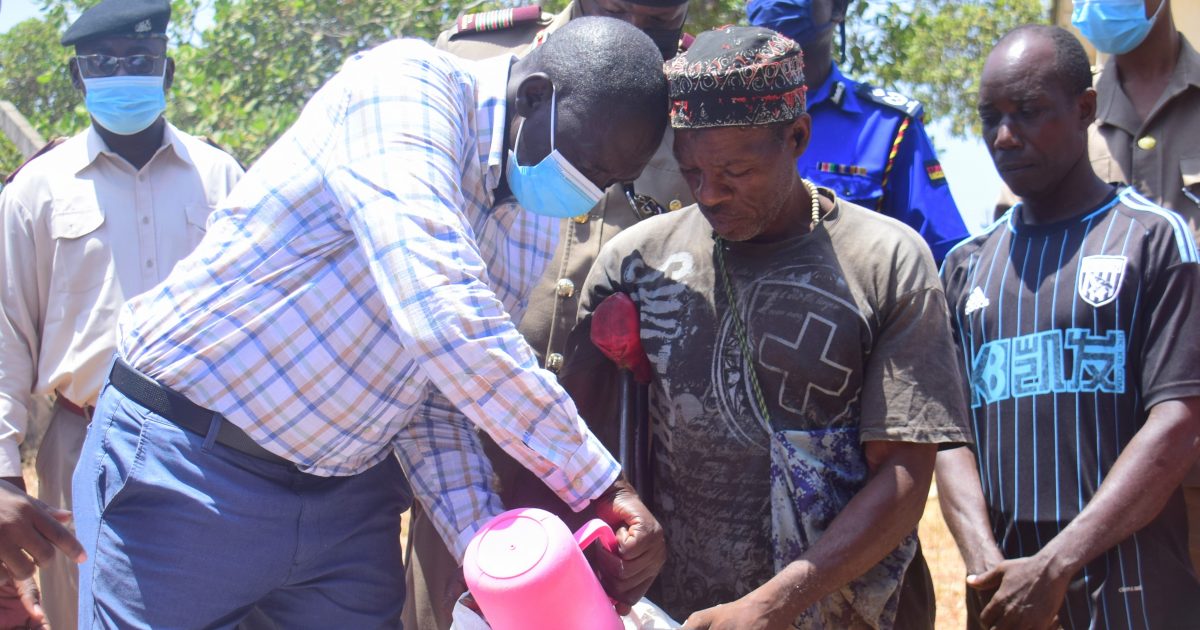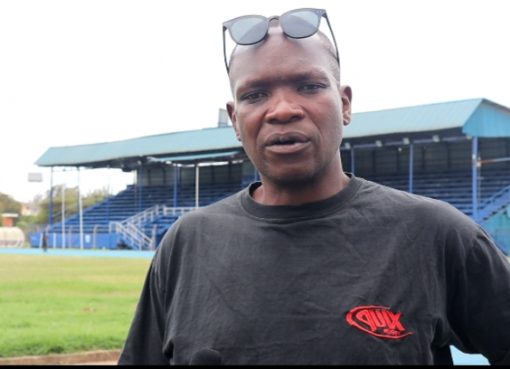The government is scaling up assistance to millions of people on the verge of famine in 23 counties hard hit by protracted drought.
Government Spokesperson Col. (Rtd) Cyrus Oguna says 2.7 million Kenyans needed humanitarian assistance and that the severity of acute food insecurity was expected to increase owing to the prolonged dry spell currently being experienced in parts of the country.
Oguna says the government is determined that no one dies of hunger and is providing emergency food aid and relief cash transfer programmes to cushion and improve the livelihoods of drought victims.
Drought has plunged 23 counties with expansive arid geography into a food and water crisis leaving tens of thousands of families’ hungry forcing President Uhuru Kenyatta in September last year to declare the current drought a national disaster and mobilizing all government agencies to respond to the drought.
The affected counties include Kwale, Lamu, Kilifi, Taita Taveta, Tana River, Turkana, Samburu, West Pokot, Baringo, Kajiado, Narok, Laikipia, Nyeri, Embu, Meru, Tharaka Nithi, Makueni, Kitui, Marsabit, Isiolo, Wajir, Garissa and Mandera.
Rain has not fallen in arid and semi-arid lands for three consecutive seasons leaving agriculture and livestock dependent households destitute.
According to experts, the devastating drought has been caused by a dramatic shift in weather patterns blamed on climate change.
“We have launched a new wave of food distribution and relief cash transfer programme dubbed ‘caravan of hope’ and the aim is to prevent the most vulnerable from slipping into famine conditions,” said Oguna noting that Sh2 billion has been set aside to combat hunger and avert humanitarian crisis.
He said food assistance and other humanitarian support would be scaled up in the months ahead to reach a larger proportion of the population affected by the drought.
“No one will die of hunger due to the protracted drought since it’s the government’s resolve to ensure that drought victims, the poor, the destitute and the elderly get the benefits of the various social safety net schemes without any discrimination,” he said.
He noted that the government through a multi-sectoral approach is also coordinating national drought interventions such as livestock off-take programme, water trucking and construction of dams.
As the effects of the dry season continued to spike, the government spokesman assured that the massive scale-up in food distribution will run alongside the cash transfer program to cushion drought victims.
“The renewed effort to distribute food aid will not end the recent shift to the cash transfer program but the two programs aimed at boosting livelihoods of drought-stricken households would run concurrently,” said Oguna.
He said the magnitude of the current drought crisis and its impact on the people necessitates the need to expand interventions to save lives.
Oguna said the government will continue its distribution of relief food and cash transfer programs through mobile money transfer platforms to assist vulnerable people in areas hit by severe food shortages.
He said the government would continue to spearhead efforts to assist affected households including water trucking and relief food distribution, cash transfer and livestock off take programme.
“Definitely we will not stop the humanitarian assistance to the beneficiaries until the current drought ravaging arid and semi-arid lands subside,” he said.
He went on, “the distribution of basic staple foods like rice and beans and providing emergency monthly cash transfers of Sh3, 000 will continue to allow families the food they need to survive”.
Oguna spoke while supervising relief food distribution exercise in Msambweni and Lunga Lunga sub counties of Kwale County accompanied by area County Commissioner (CC) Gideon Oyagi.
The spokesperson said the government has spent Sh680 million in food aid and cash transfer programmes and a further Sh.350 million in water trucking this year alone in the 23 counties affected by drought.
Oyagi on his part said 200,000 families spread in the five sub counties of Matuga, Msambweni, Kinango, Samburu and Lunga Lunga were faced with severe food shortages after months of erratic rainfall and record-high temperatures.
He said the sub counties of Kinango, Samburu and Lunga Lunga were among the areas worst-impacted by the drought adding that livestock and wildlife has been worst affected as well.
The county administrator said they have received 52,800 50 kg bags of rice and 42,000 50 kg bags of beans to be distributed to drought affected families.
“Currently 26,000 people in Kwale County bearing the brunt of the prolonged drought receive a monthly stipend of Sh3, 000 to cushion the victims,” said Oyagi.
By Raymond Zaka and Hussein Abdullahi




